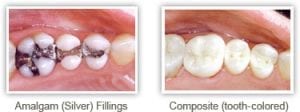FAQ
We accept all traditional PPO plans, but we are only in network with three; Metlife, Guardian, and Delta Dental Premiere
The healthiest thing to do when you lose a tooth is have it replaced. Otherwise, you risk problems with biting, chewing and speaking, headaches, muscle pain and an unattractive appearance.
Dental implants serve as the base for many tooth-replacement options, including bridges, dentures and individual artificial teeth. Implants are surgically implanted in the jaw to provide a comfortable, secure fit and a natural look.
In the first one or two appointments, the post or anchor is implanted in the jaw. The replacement tooth, bridge or denture is fitted and installed when the bone and gums have healed. Surgery may be performed in an office or hospital with local or general anesthesia.
Veneers are very thin, tooth-colored shells that are custom-fit and bonded to the front sides of teeth to close gaps, cover stains and discolorations, and correct chipped or misshapen teeth to give you a bright, even, attractive smile.
Crowns are used to strengthen and improve the shape, size or color of teeth. They can support broken or weak teeth or those with large fillings; provide a smooth, strong, attractively contoured surface for stained, misshapen or otherwise abnormal teeth; and aid in the implantation of bridges and other implants.
Bridges (also called fixed partial dentures) are natural-looking tooth replacements which help maintain facial structure, reduce stress on the jaw and fill in the gaps caused by missing teeth.
Bridges may be made of porcelain, gold, alloys or a combination of these.
Removable bridges can be taken out and cleaned at home, but fixed bridges are implanted in the jaw and bonded to the teeth with crowns or caps and cannot be removed.
Bleaching products brighten teeth that have been stained or darkened by food, tobacco use, age, injury or other causes that cannot be corrected with regular brushing or professional cleaning. There are a variety of in-office and take-home whitening products to reduce or eliminate such stains. In-office bleaching, also called chair side bleaching, takes place over a series of one-hour appointments at your dentist’s office. First, your teeth will be examined and cleaned to make sure there are no cavities, loose fillings, gum problems or other issues that may be exacerbated by the bleaching process. You and your dentist will make a custom-fit mouth tray for your teeth. Then the bleaching gel, a hydrogen peroxide solution, is applied to your teeth in the tray, sometimes after another gel or rubber shield is fit over the gums to protect them. An ultraviolet light may be shone on the teeth to facilitate the process.
Advantages of in-office tooth whitening over take-home whitening include: • Professional supervision • Fast • Safe and simple • No sensitivity
Both types of restorations have advantages and disadvantages. The biggest difference is that amalgam or silver fillings last longer than the composite or tooth-colored fillings. Some people prefer the composite over amalgam due to them being more cosmetically appealing. At our office, patients have the choice of which type of restoration they want.
Sealants are a protective covering placed on the chewing surface of permanent molars and premolars of children and teenagers. They are placed on a tooth that does not have a cavity in its pits and grooves. Sealants are useful in preventing tooth decay on the back teeth and can save patients money over time. In order to place a sealant, the tooth is cleaned and the chewing surface is prepared to help sealant stick. The sealant is painted on the chewing surface of tooth and a special light is used to help the sealant harden. Sealants are generally clear or white and cannot be seen when you smile or talk. Sealants usually last for several years before they need to be replaced.
Having dental insurance or a dental benefit plan can make it easier to get dental care you need. But most dental benefit plans do not cover all dental procedures. Your dental coverage is not based on what you need or what your dentist recommends. It is based on how much your employer pays into the plan. When deciding on treatment, dental benefits should not be the only thing you consider. Your treatment should be determined by you and your dentist.
We offer several different payment options to serve the needs of our patients. We will allow up to two payments on large cases without any interest incurred. If you require a longer payback period, we work with Care Credit, which meets a variety of financing needs, including six months with no interest if you qualify.
Emergencies all too often occur outside of regular business hours. If you have a dental emergency, please call us at 678-772-5640 and an emergency number will be provided.









